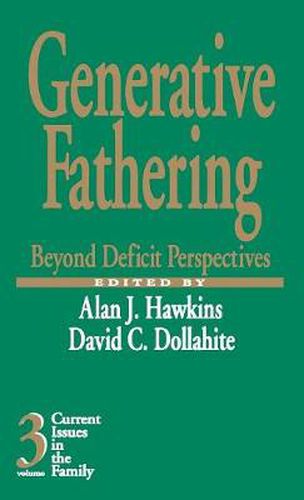Readings Newsletter
Become a Readings Member to make your shopping experience even easier.
Sign in or sign up for free!
You’re not far away from qualifying for FREE standard shipping within Australia
You’ve qualified for FREE standard shipping within Australia
The cart is loading…






Much contemporary scholarship on fathers comes from a deficit model, focusing on men’s inadequacies as parents. This volume goes beyond a deficit model of fatherhood to what the editors term a ‘generative fathering perspective’. This approach sees the work fathers do for their children in terms of caring for and contributing to the life of the next generation. Following a description of generative fathering, placing it in contrast to the role-inadequacy perspective of fatherhood, the contributors elaborate on generative fathering in terms of gender, ethnicity and historical perspectives. They present research that helps readers to understand generative fathering in challenging life circumstances, such as special-needs children, teenage fathering, divorce and remarriage. A chapter on ways to teach about generative fathering concludes the volume.
$9.00 standard shipping within Australia
FREE standard shipping within Australia for orders over $100.00
Express & International shipping calculated at checkout
Stock availability can be subject to change without notice. We recommend calling the shop or contacting our online team to check availability of low stock items. Please see our Shopping Online page for more details.
Much contemporary scholarship on fathers comes from a deficit model, focusing on men’s inadequacies as parents. This volume goes beyond a deficit model of fatherhood to what the editors term a ‘generative fathering perspective’. This approach sees the work fathers do for their children in terms of caring for and contributing to the life of the next generation. Following a description of generative fathering, placing it in contrast to the role-inadequacy perspective of fatherhood, the contributors elaborate on generative fathering in terms of gender, ethnicity and historical perspectives. They present research that helps readers to understand generative fathering in challenging life circumstances, such as special-needs children, teenage fathering, divorce and remarriage. A chapter on ways to teach about generative fathering concludes the volume.